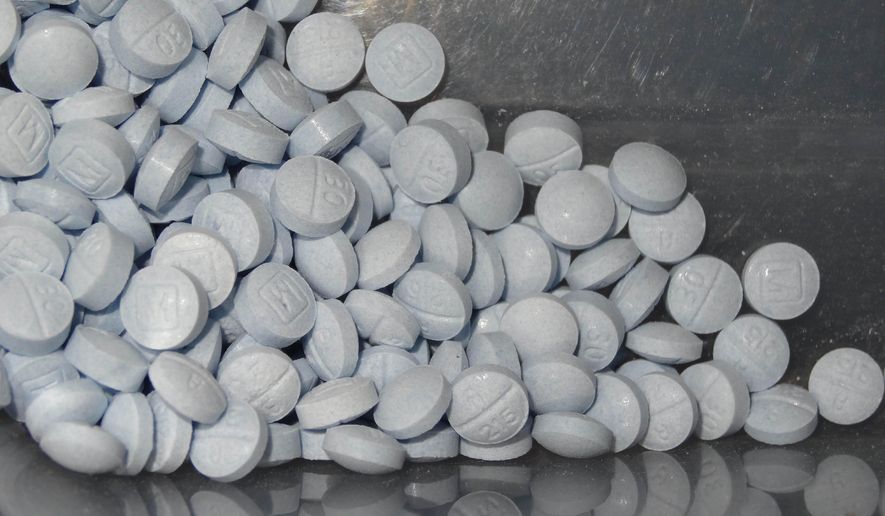A House panel heard arguments Tuesday about the pros and cons of continuing the illegal status of the deadly synthetic opioid fentanyl, in an eyebrow-raising debate that pitted law enforcement officials against criminal justice reformers.
A top Justice Department official warned the House Judiciary subcommittee that a ban on fentanyl copycats would expire next week, creating a surge of opioid deaths.
Criminal justice advocates argued that extending the ban threatened more mass incarceration of low-level drug dealers and addicts.
House Democrats have been weighing whether to keep fentanyl knockoffs, known as “analogues” — substances chemically similar to the deadly synthetic opioid — in the same drug category as heroin, LSD and Ecstasy to make it easier to prosecute traffickers.
The Senate unanimously passed an extension of the ban this month, but the Democrat-run House is taking its time.
The House is scheduled to vote Wednesday on the measure, which would extend the Schedule 1 classification of fentanyl analogues for an additional 15 months.
At the hearing by the House Judiciary Committee’s subcommittee on crime, terrorism and homeland security, Republicans demanded the fentanyl analog scheduling become permanent, while Democrats said harsher drug penalties would not solve the problem.
“Saying that we ought to put our opposition to mandatory minimums ahead of saving hundreds of thousands of lives — if there ever were wrong priorities that is it,” said Rep. F. James Sensenbrenner Jr., Wisconsin Republican. “Keeping people out of jail on mandatory minimums should not be acceptable to this Congress or anybody else.”
Rep. Karen Bass, California Democrat, responded that Congress had a responsibility to avoid making laws that perpetuate the prison cycle.
“Many defendants who are not high-level traffickers may be unnecessarily subject to mandatory minimums that, in fact, become life sentences,” she said. “I want to make sure we repeat what we’ve done in past epidemics, which is the over-criminalization of an addiction.”
Fentanyl knockoffs are classified as Schedule I drugs under a two-year emergency ban set to expire Feb. 6 unless Congress takes action. Before the scheduling change, prosecutors were required to prove the analogues were chemically similar to fentanyl and intended for human use.
Fentanyl and its knockoffs previously were classified as Schedule II drugs, meaning they are highly addictive but have no legitimate medical purpose. By classifying as a Schedule I drug, the government is saying fentanyl has no medicinal use.
Amanda Liskaam, director of the Justice Department’s opioid enforcement and prevention efforts, said the temporary ban has saved lives. She said letting it lapse could return the country to the early days of the opioid crisis.
“We are running out of time and if a solution isn’t found prosecutors will undoubtedly be hindered and drug traffickers will undoubtedly be helped,” she told the House Judiciary Committee’s Subcommittee on Crime, Terrorism and Homeland Security.
Ms. Liskaam said that since the temporary scheduling order went into effect, the Drug Enforcement Administration has seen a nearly 50% drop in the number of fentanyl knockoffs agents encounter.
“The results speak for themselves,” she said.
Kevin Butler, an Alabama federal public defender, countered that keeping fentanyl as a Schedule I drug would allow the Justice Department to pursue severe mandatory minimums. Under current law, possession of 10 or more grams of a substance similar to fentanyl carries a five-year minimum sentence.
“Class-wide scheduling is a step in the wrong direction and would mark a return to the failed approaches of the War on Drugs,” he said.
• Jeff Mordock can be reached at jmordock@washingtontimes.com.




Please read our comment policy before commenting.